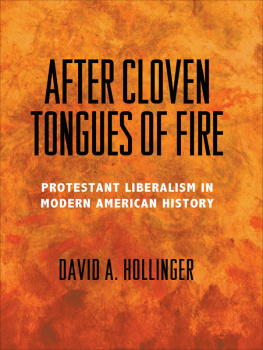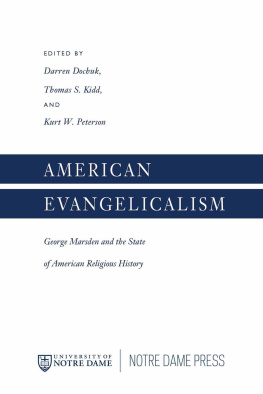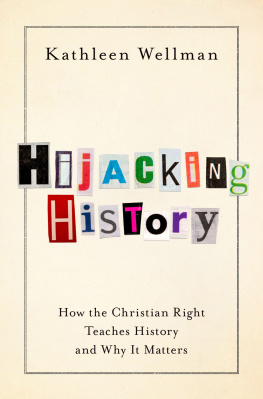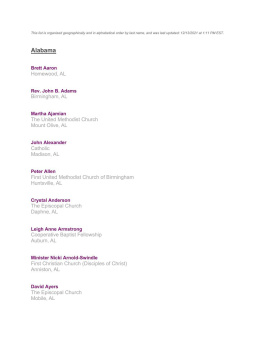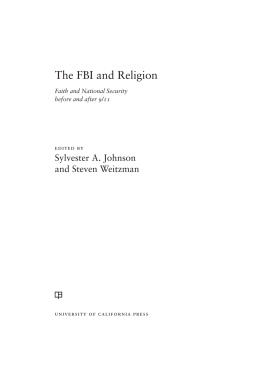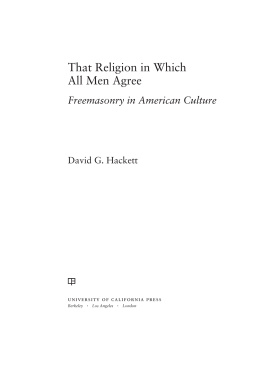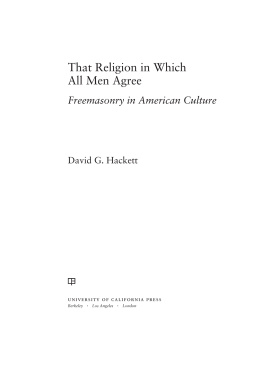
After Cloven Tongues of Fire
Also by David A. Hollinger
Morris R. Cohen and the Scientific Ideal (1975)
In the American Province (1985)
Postethnic America: Beyond Multiculturalism (1995, 2000, and 2006)
Science, Jews, and Secular Culture (1996)
Reappraising Oppenheimer (co-edited with Cathryn Carson, 2005)
Cosmopolitanism and Solidarity (2006)
The Humanities and the Dynamics of Inclusion since World War II (edited, 2006)
The American Intellectual Tradition (co-edited with Charles Capper, 6th edition, 2011)
After Cloven Tongues of Fire
PROTESTANT LIBERALISM IN MODERN AMERICAN HISTORY
David A. Hollinger
PRINCETON UNIVERSITY PRESS
PRINCETON AND OXFORD
Copyright 2013 by David A. Hollinger
Requests for permission to reproduce material from this work
should be sent to Permissions, Princeton University Press
Published by Princeton University Press, 41 William Street,
Princeton, New Jersey 08540
In the United Kingdom: Princeton University Press, 6 Oxford Street,
Woodstock, Oxfordshire OX20 1TW
press.princeton.edu
All Rights Reserved
Library of Congress Cataloging-in-Publication Data
Hollinger, David A.
After Cloven Tongues of Fire : Protestant Liberalism in Modern American History /
David A. Hollinger.
pages cm
Includes index.
ISBN 978-0-691-15842-6
1. United StatesChurch history20th century. 2. Liberalism (Religion)United States.
3. Liberalism (Religion)Protestant churches. I. Title.
BR525.H63 2013
280.40973--dc23
2012046644
British Library Cataloging-in-Publication Data is available
This book has been composed in New Baskerville Standard
Printed on acid-free paper.
Printed in the United States of America
10 9 8 7 6 5 4 3 2 1
For Carol J. Clover
My Most Regular and Helpful Interlocutor on All Things Protestant
Contents
Preface
MY FATHER REFERRED TO METHODISTS as Baptists who could read, wrote Norman Maclean. Any Methodist who heard Macleans Presbyterian father say this might have responded with what Methodists often declare about Presbyterian condescension: Presbyterians are Methodists with money. Baptists, long skilled in the politics of competitive humility, often allow that they walk more humbly in the Lord than the more status conscious Methodists and Presbyterians.
Light-hearted but with an edge, such banter can remind us of differences in class and culture within the broad, multidenominational Protestant community of faith that until fairly recently enjoyed cultural hegemony in the United States. The extent of that communitys influence is easily forgotten in an era when not one of the nine justices on the Supreme Court of the United States was born into a Protestant family, although one is an Episcopalian convert. This simple fact about the United States in the twenty-first century illustrates how much the ethnoreligious demography of the nation had changed in the previous five decades. Prior to 1960, if you were in charge of something big and had opportunities to influence the direction of the society, chances are you grew up in a white Protestant milieu. And most likely you were affiliated, at least nominally, with one of the mainline churches, of which Methodists, Congregationalists, Presbyterians, Episcopalians, Northern Baptists, and Disciples of Christ were prominent, along with several Lutheran and Reformed bodies and a smattering of smaller confessions.
The election of a Catholic President in 1960 and the rise during the same era of Jewssecular as well as religiousand of Catholics to cultural leadership changed American life, as did the massive immigration from the 1970s onward of many peoples from non-Protestant countries in Asia and Latin America. But at the time John F. Kennedy was elected, all branches of the federal government and most state and local governments were under the comfortable supervision of men and women who shared a religious ancestry. The same was true of the overwhelming majority of the leading universities, foundations, and cultural institutions. A handful of Jews and Catholics had served on the Supreme Court and elsewhere in national leadership; it is easy to list other exceptions to the rule famously enunciated by President Franklin D. Roosevelt in 1942 when he remarked, You know this is a Protestant country, and the Catholics and Jews are here under sufferance. But this extraordinary hyperbole did point toward a truth of sorts, and that so magnanimous and diversity-accepting a leader as Roosevelt felt comfortable voicing it in the presence of the Jewish Henry Morgenthau and the Catholic Leo Crowley is a sign of how much the United States had to change before its Supreme Court could consist exclusively of six Catholics and three people of Jewish descent. I remind us of these social transformations not to celebrate them, and certainly not to lament them, but to alert us to some basic dynamics of American history that can be lost from view if we forget the cultural authority long exercised by men and women whose religious home was in one or another of the classic American Protestant denominations.
This book is about the struggles of Protestant liberalizers to achieve a satisfactory relation with the increasingly secular culture of the North Atlantic West and the increasingly diverse population of a nation endowed with a godless constitution that enabled religious pluralism. People like Macleans father and his Montana neighbors described in A River Runs Through It were important to these struggles because the voluntary nature of American Protestantism required its leaders to persuade the masses in the church pews of the soundness of what these leaders were doing at the peril of losing the community they were trying to lead. Hence the history of American Protestantism displays an especially vivid example of the tension between cosmopolitan elites and provincial masses: educated leaders try to move the faithful in directions apparently dictated by the shifting circumstances of history, while the constituency perceives global issues through local lenses and worries that the leadership is being seduced by a treacherous modernity being articulated in places like New York City and the capitals of Europe.
Too worldly was a common complaint against the cosmopolitan liberals of every American generation of Protestants, especially those who, from the late nineteenth century onward, developed the social gospel and sought to build equitable human communities expected to endure. It is this liberalizing dynamic that I flag with the phrase, After Cloven Tongues of Fire. As I explain at greater length in , which like the entire volume carries that title, the key word is after.
If the spiritual solidarity of all humankind could be achieved in fleeting, ecstatic moments like the one recorded in the biblical story of Pentecost (Acts 2:111), when the faithful of diverse tribes heard each other testify with cloven tongues of fire as if each spoke in the others language, what comes next? What does one do in the world, in the prosaic routines of daily life, to act on this vision of human community inspired by the Jesus of Nazareth? Not all Christians pushed that question. Some preferred to remain focused vertically, one might say, on the individual believers relation to the Divine. But liberalizing Protestants, in their horizontal worldliness, often did push that question. Hence they became great organizers, institution builders, and social reformers, searching for ways to enact what they understood to be Christian ideals within worldly affiliations and through their instrumentality.
Next page
